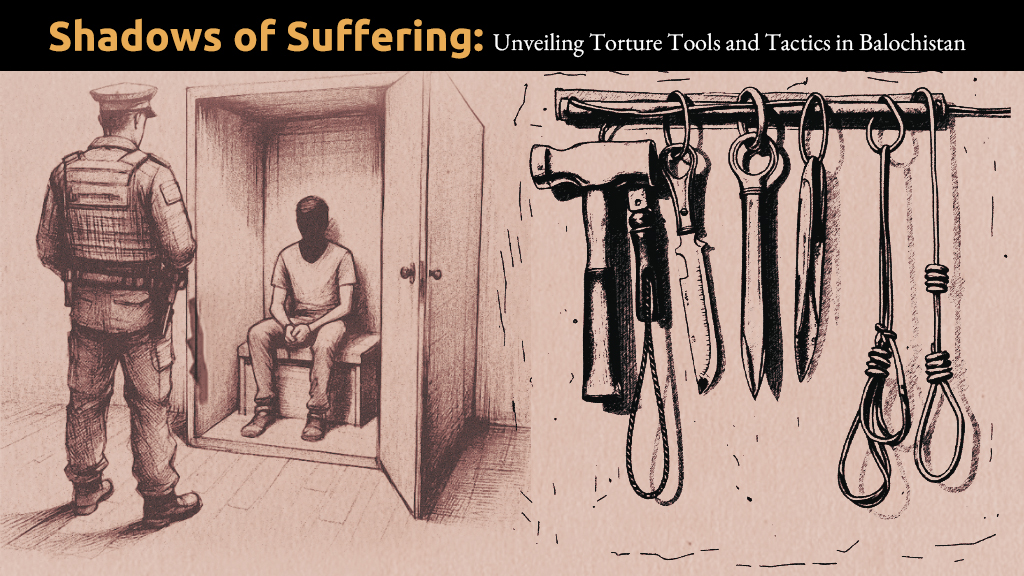Shadows of Suffering: Unveiling Torture Tools and Tactics in Balochistan
Balochistan, the largest province of Pakistan, has long been a crucible of conflict, marked by a deep-seated struggle for autonomy and resistance against state oppression. Historically rich and culturally distinct, Balochistan has witnessed significant political, social, and economic marginalization, fostering an environment where human rights abuses have become alarmingly routine. This report delves into the harrowing realities faced by the Baloch people, focusing specifically on the pervasive use of torture as a tool of state control.
Since Balochistan’s accession to Pakistan in 1948, the region has experienced waves of insurgency and brutal crackdowns by the state. The Baloch struggle for autonomy and rights has been met with severe repression, and the state’s response has been characterized by systemic human rights violations, including arbitrary arrests, enforced disappearances, and the widespread use of torture.
The situation in Balochistan represents not just a regional crisis but a significant human rights issue with broader implications for international law and justice. Torture, as a violation of fundamental human rights, demands immediate attention and action from the global community. The patterns of abuse detailed in this report are not isolated incidents but are indicative of a systematic and deliberate strategy by the state to suppress dissent and maintain control through fear and violence.
The primary objective of this report is to shed light on the patterns and practices of torture employed by the Pakistani state in Balochistan. It aims to document the methods, impacts, and systemic nature of these abuses while highlighting the broader implications for human rights and justice. By providing a detailed analysis of the mechanisms of torture and the impunity enjoyed by perpetrators, this report seeks to bring attention to the ongoing plight of the Baloch people and advocate for urgent international intervention and accountability.
To read the complete report click here

